"Spiderman: No Way Home" Editor Jeffrey Ford, ACE Talks Post with Filmmaker U
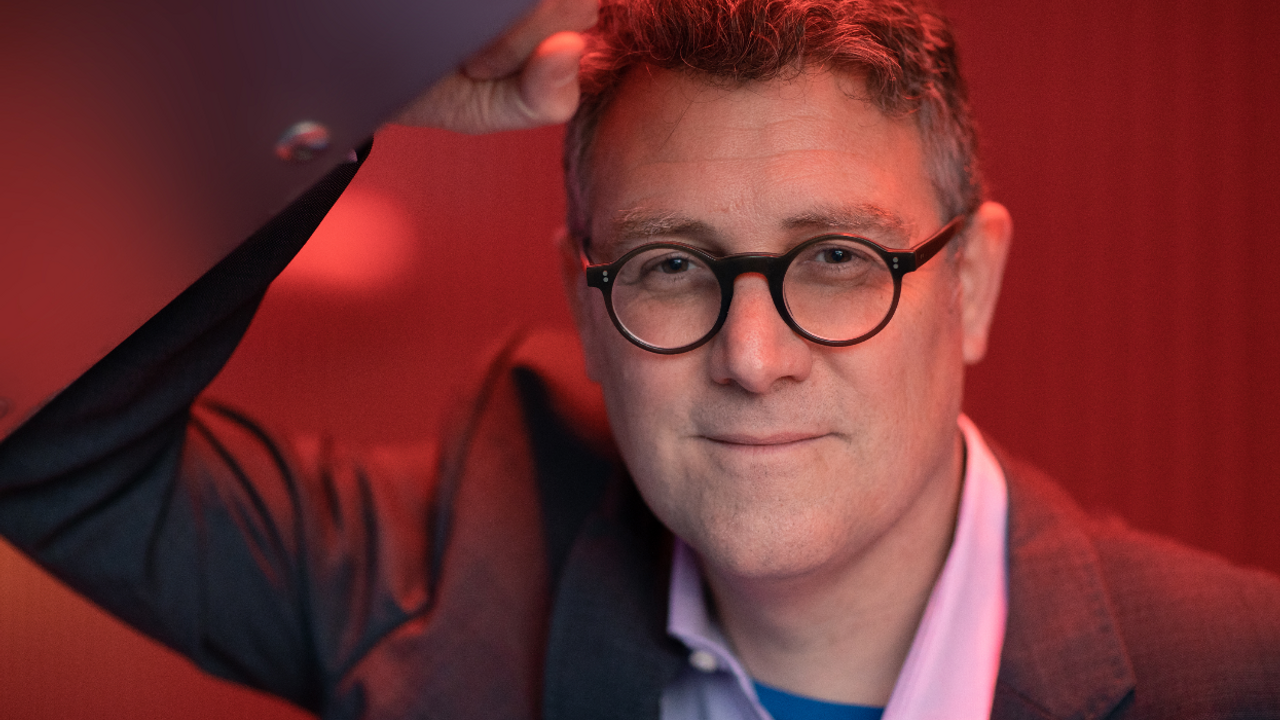
Gordon Burkell (GB) - Today I'm joined by Jeffrey Ford, the editor of "Captain America: Civil War," the original "Avengers," and the new "The Falcon and The Winter Soldier" amongst so many other great films. Welcome to the show. I want to talk to you about the "Falcon and The Winter Soldier." Usually editors start editing the day after shooting starts. You mentioned that it was a bit different on "The Falcon and The Winter Soldier?"
Jeffrey Ford (JF) - The editors on “The Falcon and The Winter Soldier” were really an amazing team. It's one of the privileges of working at Marvel, we get to work with all these amazing editors, actors and filmmakers. I worked with editors Kelly Dixon, Todd Desrosiers and Rosanne Tan. They did the heavy lifting on the show and they were on it longer. I came in to help out when the workload got busy. We had a lot to do in a short amount of time because of a COVID shutdown that caused the show to pause production. When it came back up again, we wanted to get it out on schedule. We had to hurry because it was like editing a six hour movie. The show plays like a Marvel movie. It's really detailed and has all the same production values and intensity of a Marvel movie. So there needed to be a lot of us and it was a total team effort.
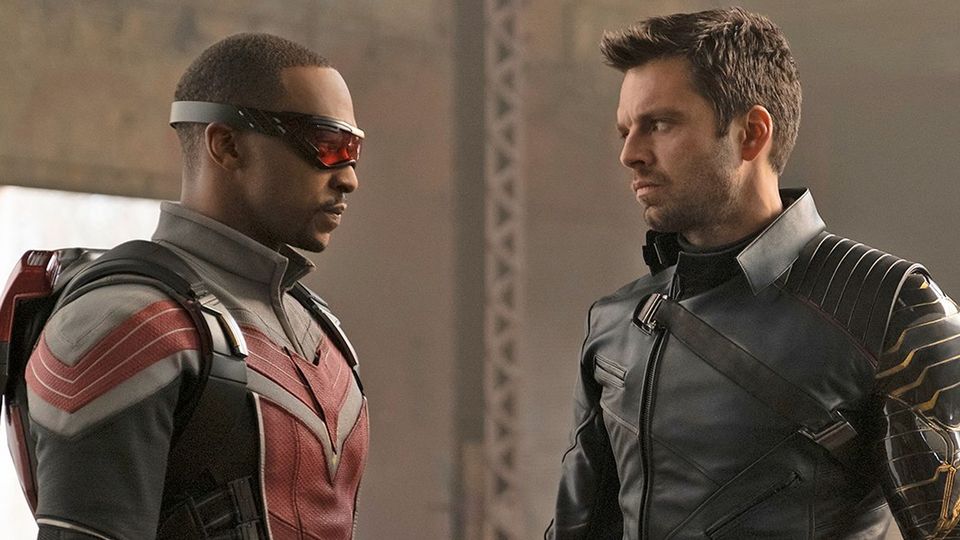
(GB) - You've edited a lot of feature films for Marvel. When you're editing a six hour TV show, how did you guys oversee the character arcs for six episodes? You have so much more time to tell the story, so how did that affect the editing?
(JF) - The show is shot a lot like a feature film. It is not shot episode by episode. It's shot based on location and when the actors are available. So they shoot all the material for a particular location at once. When we were editing, we had pieces from all the different episodes coming in at all different times. For the most part, there was one editor for two episodes. I helped work on all of them to try to bring the threads together and catch up in areas where things got busy. As cuts became ready, we presented it to the Marvel team and the director Kari Skogland. There are some really elaborate visual effects and that work takes time. We wanted to get everything into the pipeline as early as we could, so we could get the most bang for our bucks and have really beautiful elements to work with.
(GB) - Before you got to Marvel, you were working on many other films. What were some of the unexpected challenges once you started working on a Marvel film?
(JF) - People have asked me this before and I have to say the Marvel process is not that different compared to other films that I've been involved with. The problems are the same problems whether you are editing romantic comedies, thrillers or dramas. They all have the same demands. It's all about the storytelling puzzle that you're trying to solve and when it comes to the Marvel films there's a reason why they are so successful. They're comic book movies but they also trade on traditions of cinema. Great visual storytelling, great sound, creative and expressive use of music in the storytelling, great acting, and great casting, which is Marvel's secret weapon. The only difference, and this is not about Marvel, is that the process of filmmaking has evolved due to changes in technology since I started at Marvel. Nonlinear editing and visual effects work has become so much more available. You can have a virtual set now that didn't exist 10 years ago. Virtual sets were too expensive, they were inconceivable because they were so complex. Now we have software that can make most things possible. Look at what “The Mandalorian” is doing with their Volume work. I think that's been one of the most exciting things for me from a technical side but in the end it's all about storytelling.
(GB) - Earlier you mentioned the characters in "WandaVision”. You have worked with one character for so long and now you are getting to work on other character stories in the marvel universe. What do you look for in a character arc when you are reading a script?
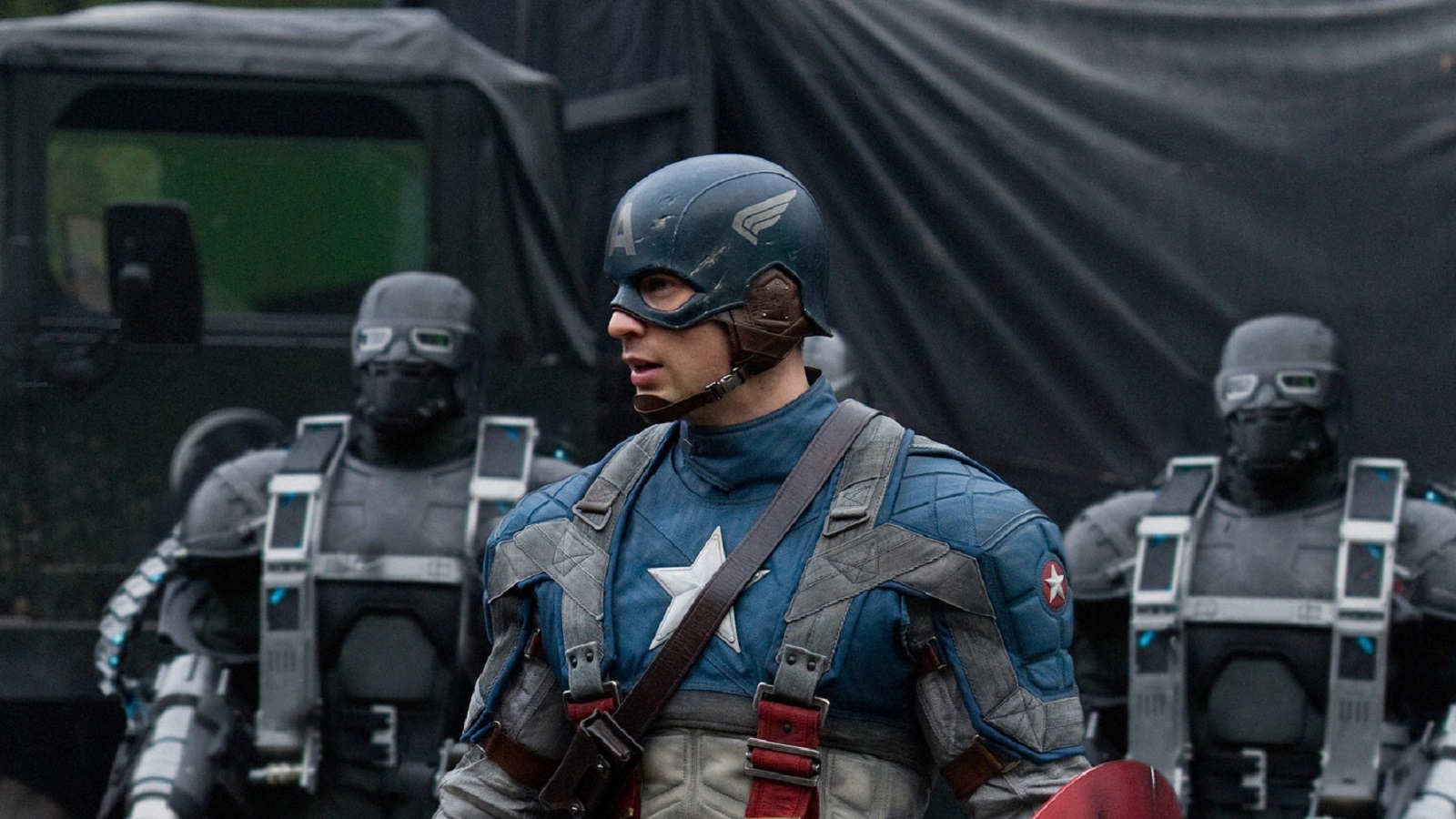
(JF) - I’ve worked a lot on the "Captain America" trilogy. I started with “The First Avenger” and worked on Chris Evan’s character arc. I really identified with that side of the Marvel universe -- the Captain America storyline. The story arc reflected and interacted with things that were going on in the real world. Tony Stark's arc is such an outgrowth of the post 9/11 world, which is about who we are as weapon makers. What is the world now? And how do we approach that? Tony Stark’s story is born out of the post 9/11 shock and it felt like it was connected to our culture in an interesting way. Chris Evan’s character arc which has him transform from a true believer in what America was like in World War II to what it is now in the present day. What happened to the country while he was frozen was so interesting. And now here's a guy whose morality was formed in the black and white world of World War II, and now he's got to deal with a million shades of grey in our modern world. I love the idea of a "Rip Van Winkle" story and applying it to our modern times. So I've been very at home in that world. Then we get into the “Guardians of the Galaxy”. Those guys are great. Chris Pratt is the funniest guy on earth, I love that stuff, but that was not the part of the universe that I found myself in. Wanda, on the other hand, is an outgrowth of “The Avengers”. She has a sci-fi component to her powers. Working on her character in “Age of Ultron" and then again, in "Civil War", she developed even farther. She has an amazing arc in "Infinity War," where she has to make a really difficult choice at the end of that movie and that is what leads to “WandaVision”. So having worked on that character, with Joe and Anthony Russo, was really very interesting to see where they went with it. I was really surprised at how audacious they were with the storytelling techniques. I thought it was a good one for them to come out of the gate with because it was just such a big swing, and they did such interesting work on it.
(GB) - It's a crazy swing to make the first three episodes look and behave like a show that was made in the 50s.
(JF) - That's the fun thing about streaming television in general. We have grown up with so much TV, and it's taught us that now we can try new ways of storytelling. There are genres that we are so familiar with that you can convert, combine, and mix and match. It’s super fun! I don't think this would have been possible early on when movies were just forming, those genres were just taking shape. Now we're so used to the different genres, there is a rhythm to them. It's like music, you get used to a pop music rhythm and then all of a sudden, you're like, "Hey, if you're a jazz musician, you can take that and twist it and make it move in new ways." You can combine things and end up with really new interesting patterns, and new ways to tell stories. Then of course, the culture is always changing. I think that's where you can take big chances in terms of how it resonates and what a show or film means.
(GB) - I really appreciated Captain America and Tony Stark's relationship because they got under each other's skin and the way that played out was really fantastic.
(JF) - That's one of my favorites. Those two guys together have chemistry and a deep love for each other at the same time. They have conflict and love. And that evolved over the course of their work together. The chemistry of the actors, the style of the characters combined with the stories they're in. It makes for these amazing relationships that we can relate to because we have those relationships in our own lives.
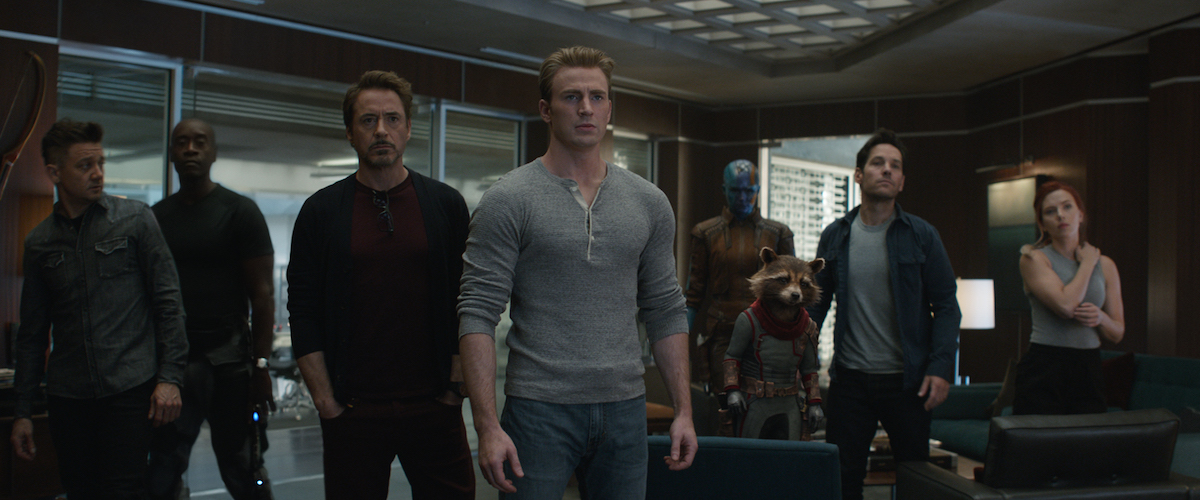
(GB) - With "Infinity War" what were the discussions in the edit suite about “the snap”? Were you guys worried about how people were going to take it? That was such a big swing!
(JF) - I think the biggest conversation was about "Spider Man" going because Tom Holland is a startlingly good actor. His performance in the moment when he goes in "Infinity War" is so startling, raw and real and very shocking. It's just a very real moment in a science fiction context. But the fact that it is science fiction doesn't matter, because you're just experiencing it as an emotional event. It is an intense experience because it's happening to a character that you've been tracking for several movies. So that's where we all think, "Oh, we're in trouble” people are going to say, "How can you do that to us?" The parents are going to say, "I brought the kid and Spider-Man disappears!” However all of those fears went away the moment we went into the theater and watched it in previews. We could tell that it was going to work. We preview those films, we don't just put them out there. They are tested, not because we want to maximize the potential of the marketing machine, but because the movie's rhythm is affected by the audience. Until you have an audience sitting watching the film, you don't know what that rhythm is, no matter how good you are. I don't believe that we've ever made big seismic changes based on an audience reaction. The changes are tiny ones, usually about music, pacing, sound and clarity. Making sure that points that we want to be clear are clear, and also points that we don't want to be clear are obfuscated.
(GB) - So it's not like they're going to say, "Oh, this one audience didn't like it. Let's rewrite the whole thing."
(JF) - That is correct. Previews are always about getting a feeling for how the rhythm of the movie is going to be. We've tested every movie that I've edited, and it has been so valuable.
(GB) - Is there a scene in your work that was difficult to tackle initially, but you were able to overcome it and it's become one of your favorite scenes?
(JF) - Films generally evolve and come to life when you're editing. It's the exception to the rule to have a big moment that just lands and you're good to go. For example in the scene when Tony Stark dies in "Endgame”, it is a very delicate moment. I'm not talking about "the snap," I'm talking about the relationship between Tony, Pepper, Rhodey and Peter. The calibration of that scene was really very difficult to get right. It took a long time to get it to be exactly what it is today and it's very precise. I feel now that I couldn't move a frame of sound or picture one way or another without breaking it. It was that delicate because it comes down to this tiny, silent thing. There is nowhere to hide in that scene. There is no big score, it's very intimate. In fact, the score is doing a lot of the work but in the most incredibly subtle way that pulls it all together. It's tiny piano notes that happen and so I think, that was probably one of the harder ones to calibrate.
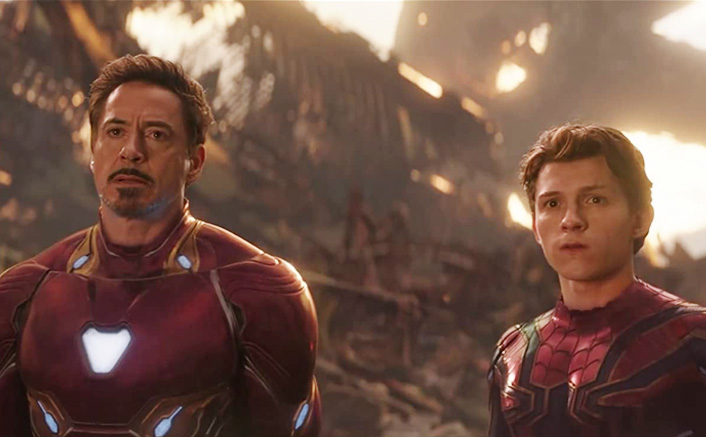
Action scenes are also tough. It’s always difficult to get those to work so you don't feel like it's too much, too overwhelming. Authenticity in general is a really hard thing to calibrate in the edit. I don't know what it looks like to have a Leviathan come through a portal and smash into a building in New York City but unfortunately I do know what it's like to be with somebody when they're at the end of their life. I do know what it's like to be with somebody that you love who you're never gonna see again. Those are emotions in movies that we all know and we know when it feels real and when it doesn’t.
(GB) - When you first look at the footage is it just people in front of a green screen?
(JF) - Scenes are usually planned out to some extent, because the actors need to see a visualized version in order to understand what they're doing. They have to occupy the correct space. Then at other times we build scenes from not very much. But I usually have some idea of what the scene is going to look like. We do a lot of work sketching what the environments might look like as we're editing and the movie isn't on green screen for long. It's usually within a few days of being photographed, we start putting in backgrounds.
(GB) - Was there any time during the editing when you weren't sure about the executive producer, Kevin Feige’s, vision but afterward felt that it really came together?
(JF) - The directors I have worked with are very collaborative in pre-production, which I think is critical in these films. The scene in "Endgame" when everybody comes back, which is a famous moment, was not something that we had figured out when we were initially shooting the movie. It was something we went back and built. We shot some of it in the initial production phase, and we went back for additional photography. It was very tricky to get it to work in a way that gives it an appropriate emotional scale. We also wanted it to feel epic but we didn't want to overdo it. Musically and visually it took months to figure out. Then it took months to achieve it. Those big moments can be very tricky, but the directors make you a partner in that. We have conversations from the time it is written, through shooting, until we have finished the movie. Even when we go into the theater during previews to see it with an audience, we are still talking about how it should work! Those conversations with the director are really why I never feel lost in these movies. I have directors who carry me along. They're your guide and you've got to trust them. Everybody contributes, but it takes one person to form a vision and then the movie sort of takes on its own life. At that point it becomes its own thing. Then we all serve the movie. There's this thing that we made that's bigger than any one person. And now you have to bow down before that, because it will not let you do the wrong thing. There are things that objectively won’t work in a movie, because that's not the story you've been telling. And you know, right away.
(GB) - If you were a guest programmer on Turner Classic Movies, what films would you recommend as essential viewing?
(JF) - There are some movies that I go back to again and again to learn about filmmaking. There's a movie called "The Conversation," which François Truffaut made in 1974. It's one of my favorite movies. I think there's so much to learn in terms of how to write a movie, how to act in a movie and also how to cut it, how to do sound, how to cut music, cinematography, composition, everything. It's an incredible, amazingly valuable film to watch. A film by William Friedkin called "Sorcerer", which is a really terrific movie. It got squashed when it was released, because it came out a week before Star Wars and bombed. It's an incredible visual movie, not a lot of dialogue, but you follow the movie just by the visual storytelling. "Citizen Kane" is an amazing movie. The last one I'll recommend is "Alien," which is a movie that was made in the 70s! It still holds up on every level today. There's a million others but those are some classics that I go back to time and time again.
(GB) - I have one last question for you and it is similar to the one that I just asked. What have you seen on streaming services that you would recommend people check out?
(JF) - I usually read to relax because I spend so much time watching screens at work. I like to see movies in theaters more than I like to watch them at home. However I streamed "Hereditary" and "Midsommar" by Ari Astor. These are contemporary horror movies, and they're great! As far as series go, Amazon’s "Tales from the Loop," I highly recommend. One episode was directed by Mark Romanic, who's one of my favorite directors.
(GB)- Thank you so much for letting me interview you.
(JF) - Thank you for having me!

